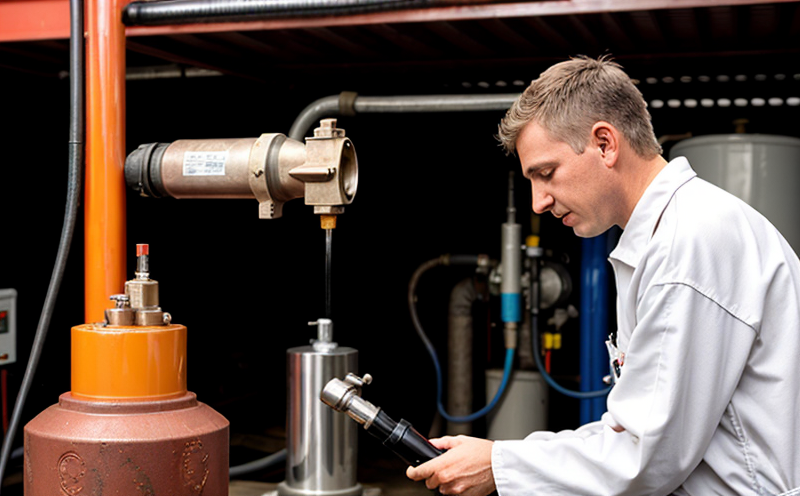ISO 4263 Lubricant Oxidation Stability Testing
The ISO 4263 standard is a crucial benchmark for assessing the oxidative stability of lubricants. This test method evaluates how resistant a lubricant is to oxidation under high-temperature conditions, which is essential in ensuring long-term performance and durability in aviation fuels and lubricants.
Understanding the oxidation stability of lubricants is critical because it directly impacts engine efficiency, longevity, and overall operational reliability. In aerospace applications, where engines operate under extreme conditions such as high temperatures and pressures, the ability to resist oxidative degradation is paramount. This test helps determine the appropriate shelf life for lubricants used in aircraft propulsion systems.
The ISO 4263 procedure involves subjecting a sample of the lubricant to controlled thermal stress over a specified period under specific conditions. The primary objective is to monitor changes in key properties such as viscosity, color, and acid number that indicate oxidative breakdown. This allows manufacturers and quality managers to ensure compliance with aviation fuel and lubricant specifications.
The significance of this test extends beyond just compliance; it also aids in the development of new formulations and improvements in existing products. By understanding how a lubricant behaves under stress, R&D teams can identify potential weaknesses or opportunities for enhancement. This not only ensures that the product meets regulatory requirements but also enhances safety and reliability.
For procurement professionals, this test provides assurance that the materials they are sourcing will perform consistently across various environmental conditions. It offers a standardized method to compare different lubricants based on their oxidative stability, facilitating informed decision-making in material selection.
Why It Matters
The ISO 4263 Lubricant Oxidation Stability Testing is indispensable for ensuring the reliability and longevity of aircraft engines and other critical components. Oxidative stability directly influences fuel efficiency, maintenance costs, and operational safety.
In aviation, where every second counts and reliability is paramount, any failure in lubricants can lead to costly downtime or even catastrophic accidents. By adhering to this standard, aerospace companies ensure that their products perform consistently across a wide range of operating conditions, from high-altitude flights to challenging ground operations.
The test also plays a role in environmental sustainability by promoting the use of longer-lasting lubricants. This reduces the frequency of maintenance checks and potential waste associated with frequent replacements due to premature degradation. Thus, it supports a more sustainable approach to aviation fuel and lubricant management.
Industry Applications
The ISO 4263 Lubricant Oxidation Stability Testing finds extensive application across the aerospace sector. It is essential for the evaluation of turbine oils, hydraulic fluids, and other aviation fuels that must withstand harsh operational conditions.
- Ensures compliance with international standards such as ASTM D94 and ISO 5162
- Supports research and development efforts in optimizing fuel and lubricant formulations
- Aids in the quality control of lubricants used in aircraft engines, propellers, and hydraulic systems
This testing is particularly critical for companies involved in the design, manufacturing, and maintenance of aerospace equipment. It provides a robust framework for assessing the performance of lubricants under simulated operational conditions.
Environmental and Sustainability Contributions
- Reduces waste by extending the shelf life of lubricants, thus lowering the need for frequent replacements
- Promotes the use of more durable materials that can withstand harsh environmental conditions without degradation
- Contributes to energy efficiency by ensuring that engines operate at peak performance, reducing fuel consumption and emissions





